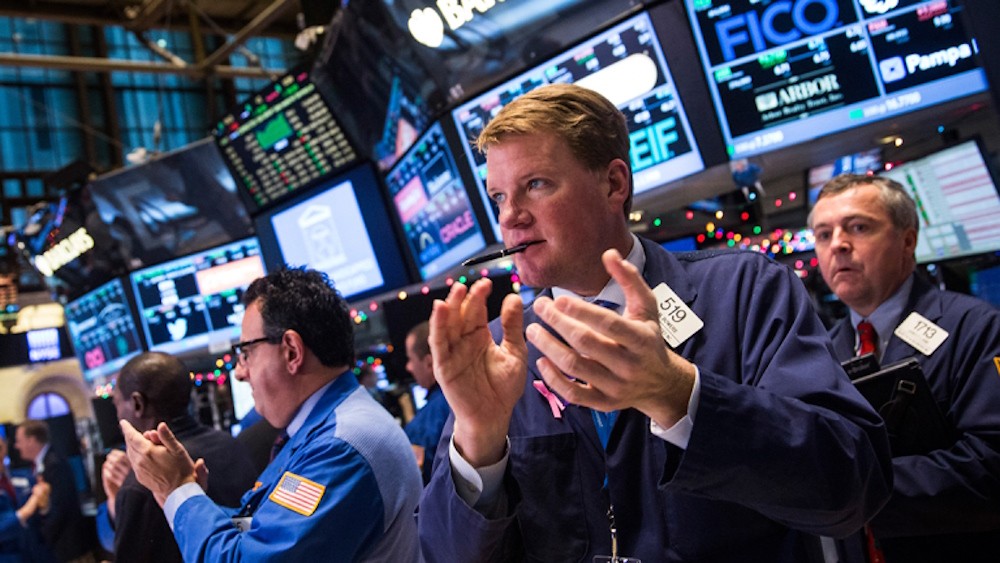
U.S. stock futures are on the rise, reflecting market optimism following indications that President Donald Trump is not planning to dismiss Federal Reserve Chair Jerome Powell. Comments from Trump regarding a potential decrease in his punitive tariffs on China enhanced sentiment as well. In the interim, Tesla CEO Elon Musk indicates that he might soon reduce his engagement with the Trump administration, as sales decline at the electric vehicle manufacturer. U.S. stock futures indicated an upward trajectory, as investors expressed a degree of relief following Trump’s statement that he had no intentions of removing Powell.
Trump informed reporters that U.S. tariffs on the world’s second-largest economy would decrease following the establishment of a deal, although he acknowledged that the duties would not be reduced to zero. Treasury Secretary Scott Bessent remarked that although discussions with Beijing would be a “slog”, he is optimistic that the two nations can mitigate rising trade tensions. ING analysts indicated that Bessent’s remarks might contribute to achieving “stabilization” for a declining U.S. dollar.
The Dow Futures contract had added 467 points, or 1.2%; S&P 500 Futures had increased by 86 points, or 1.6%; and Nasdaq 100 Futures had advanced by 357 points, or 2.0%. The primary indices experienced an increase exceeding 2.5% on Tuesday, bolstered by optimism that the White House’s previously confrontational stance in trade discussions with China might be easing. Meanwhile, traders shifted their focus to a plethora of corporate earnings reports, including the initial results from the vital “Magnificent Seven” cohort of mega-cap tech stocks.
Despite Tuesday’s gains, the benchmark S&P 500 concluded trading nearly 14% beneath its most recent record closing high on February 19, reflecting the consequences of weeks of upheaval triggered by Trump’s frequently unpredictable tariff policy.
On Tuesday, Trump seemed to retract his harsh comments regarding Powell, stating that he has “no intention” of dismissing the Fed leader. As the Easter weekend approached, market participants were increasingly concerned that Trump might be poised to remove Powell due to his perceived sluggishness in reducing interest rates. Suggestions from a top White House adviser that officials were contemplating the dismissal of Powell unsettled investors who were already on edge. However, Trump appeared to alleviate these concerns, stating that he would prefer Powell “be a little more active in terms of his idea to lower interest rates.”
The de-escalation garnered immediate endorsement from Wall Street, as a number of “Magnificent Seven” stocks — notably Amazon, Nvidia, and Apple — experienced gains in after-hours trading.
Nevertheless, signs of caution persisted regarding the erratic policy shifts observed in the initial months of Trump’s second term in office. On Tuesday, the International Monetary Fund revised downward its growth projections for the United States, China, and a majority of other nations, attributing this adjustment to uncertainties regarding the effects of U.S. tariffs.
Tesla CEO Elon Musk stated that he intends to decrease the time he allocates to the Trump administration starting next month, focusing instead on managing his various companies. Musk has emerged as a trusted advisor to Trump, significantly contributing to initiatives aimed at reducing the size of the federal government via the initiative known as the Department of Government Efficiency, or DOGE. However, his political engagements have triggered a backlash that is starting to impact his numerous business ventures, particularly Tesla, which has encountered extensive protests and vandalism at its showrooms. Declining sales at the electric car manufacturer have prompted investors to urge Musk to concentrate on overseeing the company.
In this context, Musk informed analysts during a conference call that “the large slog of work necessary to get the DOGE team in place and working with the government to get the financial house in order is mostly done.” Shares in Tesla, which reported first-quarter profits at its core auto business that were better than rock-bottom estimates, surged in after-hours trading following the comments.
On Wednesday, earnings reports from various technology companies will capture attention, as investors seek to understand the implications of Trump’s tariffs alongside the current landscape of artificial intelligence investment. Before the market opens, fiber optic connector manufacturer Amphenol, electrical component innovator TE Connectivity, and data center services provider Vertiv are scheduled to release their reports. Following the market close, attention will be directed towards IBM, the software company ServiceNow, and the semiconductor entity Texas Instruments.
In other news, the Fed’s highly scrutinized “Beige Book” is scheduled for release. The document offers an overview of the economic landscape in the weeks preceding a Federal Reserve policy meeting. At its last gathering in March, the Fed left its benchmark interest rate unchanged at 4.25% to 4.50%, as the central bank assessed inflationary risks and signs that the U.S. economy remains in a relatively solid position despite the pressure exerted by the uncertainty around Trump’s tariffs.
Bitcoin experienced a notable increase of over 5%, reaching a seven-week peak, as investors responded positively to Trump’s retraction of threats to remove Powell and his indication of possible tariff reductions on China. Gold prices retreated from an all-time high reached earlier this week, as comments from Trump supported a recovery in the dollar. A more robust dollar can render bullion pricier for international purchasers. Meanwhile, oil prices increased, maintaining the positive sentiment from the previous session following the imposition of new sanctions on Iran by the U.S. amid ongoing nuclear negotiations. Both contracts concluded with an increase of nearly 2% on Tuesday.
